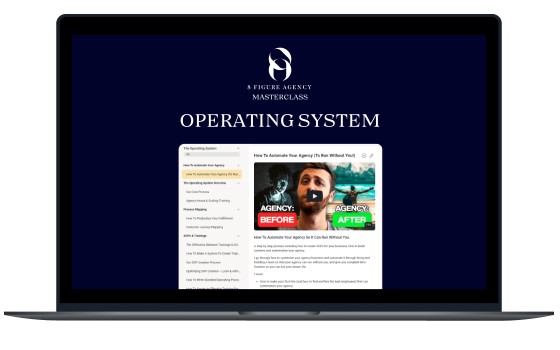Leading a team is like driving a car: the leader must navigate the right path, provide direction and guidance, and demand greatness from the team to reach the desired destination. With proper instruction and expectations of excellence, a leader can ensure their team is on track and heading towards success.
Just as a car needs fuel to move forward, teams need the motivation to keep going. That’s why great leaders know that demanding greatness from their team is a critical component of any successful organization.
There are many benefits for both the leader and the team members when it comes to demanding greatness. For one, leaders can set a high bar for performance and ensure their teams are always striving for excellence.
As a result, team members will feel more engaged and motivated by knowing that success is within reach if they put in the hard work. This not only increases productivity but also helps build a sense of pride and camaraderie among team members.
In this article, we will discuss the concept of demanding greatness from your team and how it can help you create a culture of excellence.
Understanding the Concept of Demanding Greatness
Greatness is an admirable concept that can be defined in many ways. Generally, it refers to the highest level of excellence or achievement. When a leader demands greatness from their team, they are setting high standards for performance and expecting everyone to step up and give their best effort. This is often done to help the team reach its goals more quickly and efficiently.
Why Demanding Greatness is Important
Demanding greatness from your team can have a variety of positive effects. As mentioned earlier, setting high expectations encourages team members to strive for excellence and helps them stay motivated and on track, for maximizing revenue.
It also sends the message that everyone is important and their contributions matter. This not only builds trust and unity among the team but also reinforces the idea that everyone should take ownership of their work.
Another key benefit of aiming to inspire greatness is that it helps to foster an environment of continuous improvement. By expecting nothing less than excellence, leaders are essentially challenging their team members to push themselves and strive for better results. This encourages everyone to constantly strive for new heights and to think out of the box to find creative solutions.
The Role of Leadership in Demanding Greatness
Leadership plays an important role when it comes to inspiring greatness in a team. Leaders need to be able to set clear expectations and provide effective guidance on how those expectations can be met with positive feedback. They must also ensure that everyone is held accountable for their actions, while also providing support and recognition when it is needed.
For example, to measure and improve your customer experience, the team must be held accountable for their actions and results. The leader should provide clear goals and expectations that everyone can understand, as well as supportive feedback to help them reach those goals.
Leaders must also be able to recognize potential problems before they arise and act quickly to address them. This requires an ability to identify weaknesses within the team and work towards rectifying them. Finally, great leaders can inspire their team members with their words, actions, and vision to motivate and encourage them with positive energy.
Examples of Leaders Who Demanded Greatness from Their Teams
Throughout history, there have been numerous examples of leaders who have demanded greatness from their teams to build a successful business. In business, Steve Jobs was known for his relentless pursuit of perfection at Apple and his push for innovation regardless of cost or complexity.
In sports, Pat Summitt was a legendary basketball coach who demanded excellence from her winning team and pushed them to be the best of the best. In the military, General George Patton’s famous “invasion speech” on June 6, 1944, is one of the greatest examples of leadership inspiring their team to achieve greatness.
No matter what type of leader you are, it is important to remember that demanding greatness from your team is an essential part of creating a culture of excellence and positive energy. Setting high standards for performance and expecting everyone to give and instill their all will help ensure that your team reaches its goals more quickly and efficiently. It can also foster trust and camaraderie among your team members as they come together to achieve greatness as a team. So don’t be afraid to demand greatness – it could make all the difference.
Creating a Culture of Excellence

Fostering a culture of excellence takes time, strategy, and hard work. Here’s how you can get started:
1. Setting the Tone for Excellence
The first step towards creating an organizational culture of excellence and being a great leader is setting the tone. This can be done by communicating expectations, reinforcing positive behavior, and setting specific goals. Also, be sure that everyone understands the importance of their own contribution and how it fits into the overall plan.
2. Setting High Expectations
High expectations are essential for motivating team members and ensuring that everyone works to achieve greatness. Set goals for every individual as well as for the whole team, and be clear about what needs to be done to reach those goals, so you can demand greatness.
3. Encouraging a Growth Mindset
Encourage a growth mindset by valuing mistakes as learning opportunities. This will help create an organizational culture where people feel comfortable taking risks and pushing themselves to do better each day.
4. Fostering a Culture of Continuous Improvement
Focusing on continuous improvement will help ensure that your team is always striving for excellence. Encourage feedback and constructive criticism, and be sure to recognize and reward progress.
5. Leading by Example
As a leader, it is important to show your talent force that you are also striving for excellence. Set the standard of hard work and dedication, and don’t be afraid to challenge the status quo in pursuit of greatness.
Communicating Expectations
How will your employees manifest greatness if they don’t know what it looks like? Make sure that expectations and goals are communicated clearly so that everyone is on the same page.
1. The Importance of Clear Communication
Clear communication includes expressing expectations in a way that everyone can understand. Be specific with your key points and provide examples of what greatness looks like, so that team members have something tangible to work toward and can avoid going in the wrong direction.
2. Establishing Clear Goals and Objectives
Set realistic goals and objectives that are within reach and make sure they are measurable. Having clear standards will help ensure that everyone knows what needs to be done to solve problems and achieve success.
3. Setting Standards and Metrics for Success
Once you’ve established the goals, set metrics with key points for measuring progress and achieving excellence. This will help your team stay on track and keep them motivated along the way.
4. Providing Feedback and Accountability
Provide feedback throughout the process to foster learning and continuous improvement. Hold individuals accountable for meeting the standards you have set and provide support where needed.
5. Celebrating Successes
Make sure to recognize and celebrate successes, no matter how small they may be. Showing appreciation for a job well done will help motivate your team to continue striving for excellence.
Motivating Your Team
Sometimes, a great leader has to limelight as a motivational speaker. Motivating your team is essential for creating a culture of excellence. Here are some effective ways to motivate and engage your team members:
1. Understanding What Motivates Individuals
Start by understanding what drives each individual team member. Some may be driven by the challenge, while others are motivated by rewards and recognition. Find out what motivates each member and use that to your advantage.
2. The Role of Intrinsic and Extrinsic Motivation
Intrinsic motivation comes from within, while extrinsic motivation comes from external factors such as rewards and recognition. Both types of motivation can be effective when used correctly.
3. Creating a Sense of Purpose and Meaning
Creating meaning and purpose in the work your team does is key to motivating them. Let each individual know how their contribution makes an impact on the overall success of the team.
4. Building a Sense of Camaraderie and Teamwork
Foster collaboration and communication by fostering a sense of camaraderie and a stronger bond within the team. Create opportunities for members to work together and celebrate each other’s successes.
5. Encouraging Healthy Competition
Creating an atmosphere that encourages healthy competition can help motivate individual team members to do their best work. Set goals and provide incentives for reaching them, allowing members to compete on a level playing field.
Building Trust and Respect
Trust and respect are essential for effective teamwork. Build trust by being transparent and honest, and establish a culture of respect by setting expectations for how team members should treat one another.
1. The Importance of Trust in a Team
Trust is essential for successful teamwork. Without it, members may be reluctant to take risks or express their opinions and ideas. Establish trust within the team by being open and honest.
2. Building Trust Through Transparency and Honesty
Be transparent in your communication and decision-making process, and always be truthful with your team. If mistakes are made, make sure to own up to them and take responsibility for them.
3. Building Respect Through Integrity and Consistency
Respect must be earned and is built through integrity and consistency. Set consistent standards for how team members should interact with one another, and make sure to follow them yourself.
4. The Role of Vulnerability in Building Trust and Respect
Being vulnerable with your team can help build trust and respect. Showing vulnerability can demonstrate that you are willing to open up and trust your team members, which in turn can help build strong relationships between members.
5. Addressing Conflicts and Resolving Issues
Conflict is inevitable in any team setting, but how you address it will determine how successful your team is in the long run. Work to resolve conflicts quickly by encouraging open dialogue and finding mutual solutions that everyone can agree on.
By fostering an environment of trust, respect, and collaboration within your team, you will create a culture of excellence that will drive successful outcomes. With consistent effort and a commitment to open communication, you will be well-positioned for success.
Overcoming Challenges and Obstacles

Challenges and obstacles are perfect tools for testing and honing your leadership skills. Develop a resilient mindset by understanding that challenges will arise, and focus on finding creative solutions to overcome them.
Here are a few tips to help:
1. The Inevitability of Challenges and Obstacles
Accept the fact that challenges and obstacles are a natural part of being a leader. By understanding this, you can be prepared to deal with them as they arise in an effective manner.
2. Strategies for Overcoming Challenges and Obstacles
Develop strategies for overcoming challenges and obstacles. Have a clear goal in mind and come up with creative solutions to achieve it. Focus on what can be done to move forward and don’t dwell on obstacles that have been encountered.
3. Encouraging Creativity and Innovation
Encourage creativity and innovation in your team by providing them with opportunities to try different approaches and think outside the box. Brainstorming sessions are an ideal way of generating creative new ideas and finding unique solutions.
4. Embracing Failure and Learning From Mistakes
Failure is a part of life, and it can also be a great learning opportunity. Don’t be afraid to take risks and accept that mistakes will happen along the way. Instead, focus on what can be learned from them and use them as a chance to grow and improve.
5. Staying Focused on the Big Picture
When challenges and obstacles arise, stay focused on the bigger picture. Try to look at the situation objectively, and keep your team motivated by reminding them of their purpose and goals.
By staying mindful of these strategies, you will be better equipped to handle any situation that may arise. Developing your leadership skills will help you become a more effective leader who can lead and motivate others through challenging times.
Developing Your Leadership Skills
Your leadership skills should be nurtured through active leadership development over time. Implement these strategies to help you become a better leader:
1. Learning and Growing Through Self-Reflection and Self-Awareness
Develop an understanding of yourself and your leadership style by taking the time to reflect on your successes, failures, and areas of improvement.
2. Understanding Your Leadership Style
Understand how you lead best by looking at what leadership qualities come naturally to you and which ones you need to work on. Develop a combination of these qualities that will enable you to be an effective leader in any situation.
3. Developing Your Emotional Intelligence
Develop your emotional intelligence by understanding your emotions and those of others. Learn to recognize different perspectives, control your emotions and empathize with team members.
4. Building Your Communication Skills
Good communication is essential for successful team management and strong relationships with team members. Work on developing your listening skills, speaking skills, writing skills, conflict resolution, and negotiation skills.
5. Investing in Your Own Personal and Professional Development
Invest in your own personal and professional development by regularly expanding your knowledge and skills. Take part in training programs, seminars, workshops, or online courses to stay up to date with the latest developments.
Well-developed leadership skills will guide you to make informed decisions, motivate your team members and lead them toward success.
Leading with Empathy
Empathy is the ability to understand and share the feelings of others, and it’s an important quality for any leader. Here are some key strategies for leading with empathy:
1. Understanding the Needs and Perspectives of Team Members
Understand the individual needs and perspectives of team members by creating an open atmosphere of collaboration. Foster meaningful relationships with your team, ask for their feedback, and make sure their voices are heard.
2. Creating a Safe and Inclusive Environment
Create an environment where team members feel secure to express themselves and share their opinions without fear of judgment. Encourage open dialogue and constructive feedback, so everyone feels comfortable contributing.
3. Encouraging Diversity and Inclusion
Value diversity and inclusion in the workplace by embracing different backgrounds, cultures, and experiences. Recognize team members for their unique strengths and talents, and celebrate successes together to foster a sense of belonging. This is one of the primary strategy for demanding greatness from your team.
4. Fostering a Sense of Belonging
Creating an atmosphere of trust and respect will help team members to feel supported and valued. Ensure everyone understands their role in the organization, promote positive motivation, and encourage collaboration between different teams and departments.
Empathy should never be overlooked when it comes to leading a successful team. By implementing the strategies mentioned above, you will be better equipped to manage your team effectively and foster an inclusive and successful working environment.
Conclusion
Leading a successful team requires more than just good management and motivation. It takes an understanding of the individual needs, perspectives, and backgrounds of each team member to truly foster success within any organization.
With these strategies in mind—learning and growing through self-reflection, developing your emotional intelligence, building communication skills, investing in personal development, and leading with empathy—you can develop strong leadership qualities that will help you motivate and inspire others for great performance.
When done well, demanding greatness from yourself and your team can have positive impacts on all involved: leaders become better decision-makers; teams reach their full potential; organizations reap rewards from improved productivity.
So take the time to demand greatness for a more successful and prosperous future.






